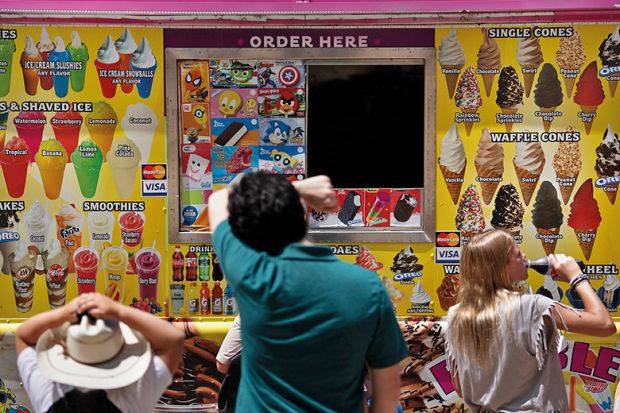The authors of a new study exploring the impact of temperature on academic habits warn that universities should play increasing attention to the issue as climate change pushes weather to the extremes more frequently.
By collating responses from more than 2,500 US college students to the American Time Use Survey with meteorological data, the researchers found that on cold days – below the bottom 20th percentile of the local temperature distribution – learners were 9.7 percentage points less likely to attend class. This reduced the average amount of time spent in lectures across the cohort by 27 minutes.
Hot days – above the top 20th percentile – reduced the likelihood of students attending class by 8.8 percentage points, or an average of 20 minutes, while the average amount of time students spent studying independently dropped by an hour.
More extreme temperatures had an even greater impact. Students from cold places spent about three hours less learning during a sweltering day – classed as being above the 85th percentile – compared with a mild day.
Researchers Ivan Carlo Alberto, from California State University; Yang Jiao, from Young Harris College; and Xiaohan Zhang, of the Federal Reserve Bank of Dallas, say that students responded to extreme temperatures by replacing education with “weather-appropriate leisure”.
On cold days these included sleeping, watching television and playing video games, while on hot days they included playing sport and going shopping.
“An essential factor in the accretion of human capital is study time and extreme temperatures could temporarily interrupt students’ learning by reducing their class attendance and self-study,” the researchers write in the Economics of Education Review.
“This is also even more critical since climate change is not only responsible for rising average temperatures but also for more frequent temperature extremes.”
A 2019 experiment in which students were made to sit tests in environments that ranged from a chilly 16.1ºC to a sweltering 32.6ºC found that temperatures could have a substantial impact on exam performance, albeit with a significant gender divide, with female students performing better in warmer conditions, and men thriving in the cold.
Tom Chang, associate professor of finance and business economics at the University of Southern California and a co-author of that paper, said that the latest study was “very interesting and important work”.
“Here we see that weather does have a large impact on how students spend their time, though the story is more complex than playing hooky on nice days,” he said.
POSTSCRIPT:
Print headline: Extreme weather melts study time
Register to continue
Why register?
- Registration is free and only takes a moment
- Once registered, you can read 3 articles a month
- Sign up for our newsletter
Subscribe
Or subscribe for unlimited access to:
- Unlimited access to news, views, insights & reviews
- Digital editions
- Digital access to THE’s university and college rankings analysis
Already registered or a current subscriber? Login






